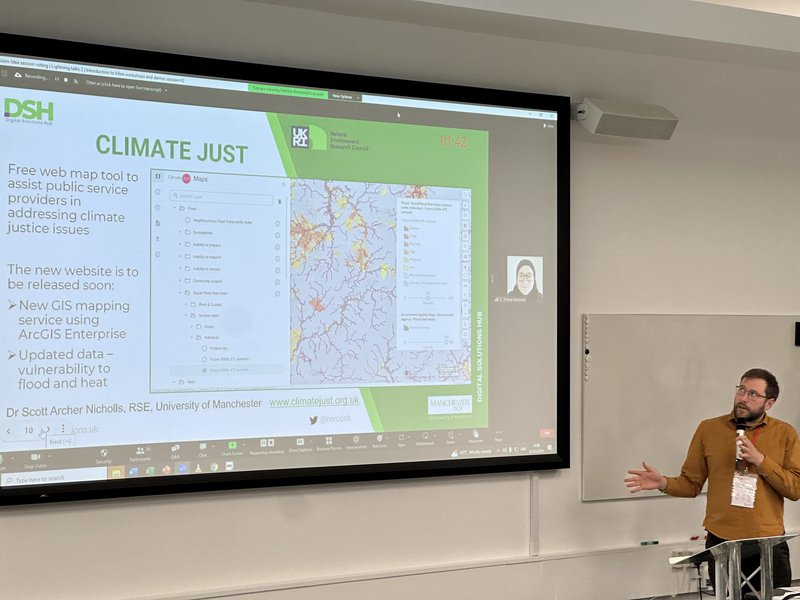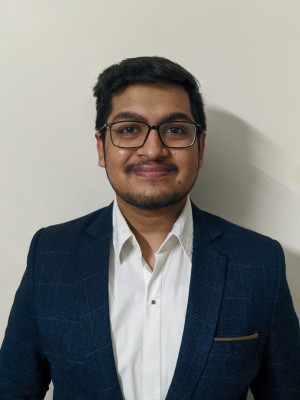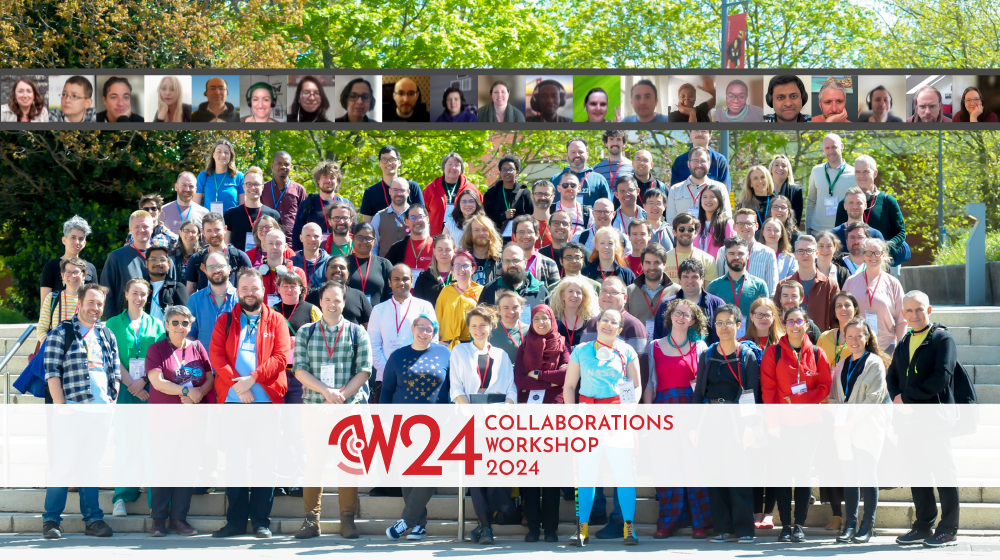This blog post was first published on the website of Research IT, Manchester University.
| SSI Fellow Aman Goel and Scott Archer-Nicholls from the University of Manchester Research Software Engineering team attended the recent Collaborations Workshop (CW24). Here they share some of the highlights from their time at the event. |
Back for its 16th year, the Collaborations Workshop (CW24) recently took place at Warwick University in Coventry. The workshop is organised by the Software Sustainability Institute and brings together researchers, developers, funders, leaders, educators and research software engineers from universities and industry.
We had the great pleasure of participating in the workshop in-person and taking part in the engaging discussions over a course of three jam-packed days. As the name suggests, the CW24 has a strong focus on encouraging communication and collaboration between participants, offering many opportunities to network and meet old and new members of the community in the form of meals, social sessions and coffee breaks.
The themes for this year’s workshop were Environmental Sustainability, Artificial intelligence (AI)/Machine Learning (ML) tools for science and Citizen Science. We were also encouraged to propose our own topics and develop discussions around them. The keynotes gave opportunities for experts to present on the workshop themes, while panel discussions and breakouts allowed participants to critically engage with important questions about the future of research software engineering.
The first keynote was by Arfon Smith from GitHub, who talked about how generative AI tools, such as GitHub Co-pilot, are going to completely change the way research software engineers (RSEs) work in the next 5 years. With most people in the room having many concerns over this potential future, he shared his five principles for building generative AI products: no decisions, design for failure, ground in reality, invite only and “explain like it’s me”.
The second keynote was by Lucy Robinson from the Natural History Museum, sharing with us her experience creating advocates for nature through community science (not citizen science) programs, such as the Natural Education Nature Park Project and iNaturalist UK. Finally, Kelly Widdicks from the UK Centre for Ecology and Hydrology discussed the hot topic, if you excuse the pun, of the climate impacts of IT infrastructure. While there is widespread acceptance that we are in a climate emergency, tools for assessing the emissions from IT infrastructure are currently limited and not often considered by researchers or funders, although these will become increasingly necessary as Net Zero targets are implemented.
Most of the other sessions during the conference ran in parallel, allowing each of us to focus on a variety of topics of interest such as environmental sustainability, portfolio careers, community building, and best practices among others. There was also a series of lightning talks during the workshop, where Scott talked about the “Climate Just” project. On the final day of the workshop, we participated in the Hack Day, splitting into groups to build proof-of-concept projects from ideas discussed in the workshop.

In preparation for the Hack Day, during one of the Collaborative Ideas sessions, we had a discussion about mental health and productivity in the context of research software engineering. Our proposed solution was a Carpentries-style lesson discussing the mental health benefits of organising one's thoughts, tasks and commitments into a trusted system to reduce stress related to workload, and open the mind up to creative thinking.
We developed the idea further during the Hack Day and were able to successfully initiate a Carpentries lesson for the same, which also ended up winning a prize at the workshop! The lesson is a prototype and a work in progress, and we aim to develop it further into a full-fledged lesson and resource over time.
The other Hack day project we participated in was on building a database of education history of UK members of Parliament, such as which University they attended and what they studied. Amazingly, even though this information is publicly available, there is no easy way to find all this data in one place. We built a prototype that scrapes MP’s University attendance from Wikipedia and presents it through a simple front-end map.
Attending CW24 was an excellent learning experience, which not only helped us reflect on the work we’re doing, but also gave space to new ideas and conversations. We were able to start new collaborations in different capacities, and are looking to build them further. At the team level, we hope to include important conversations such as environmental sustainability, use of AI and mental health in our day to day practices.
Overall, the SSI CW is a great opportunity to discuss everything about research software, form collaborations and network with the community. Its unique structure, which actively encourages interaction and discussion, seems to attract engaged and interesting researchers, creating a friendly and lively atmosphere. We’d highly recommend attending the workshop in future years and would love to go again.


